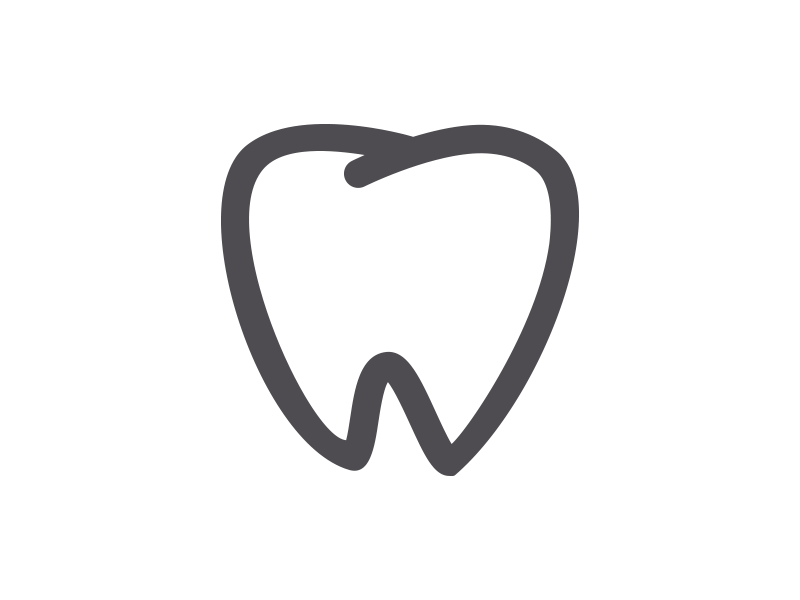Preventing Periodontal Disease
Preventing Periodontal Disease
What is Periodontal Disease?
Periodontal (Perry-o-DON-tal) disease is an infection affecting the tissues and bone that support your teeth. It is also called gum disease.
A surprisingly wide variety of bacteria are normally found in your mouth. When certain types of bacteria outgrow the others, this starts the process of gum disease.
When your gums are healthy, your gum tissues tightly hug each of your teeth. When you have gum disease, your gums pull away from your teeth. As the gum disease gets worse, the tissues and bones that support your teeth become damaged. Over time, your teeth may fall out or need to be removed.
Treating periodontal disease in the early stages can help prevent tooth loss.
What is the connection between gum disease and other health issues?
Gum disease has been linked to some other diseases. People with diabetes or heart disease are more likely to get gum disease. Strokes and high stress also may be related to gum disease. Researchers are still studying these links.
It is important to talk to your dentist if you suffer from any long-term health problem. Together, you can work out an oral care plan for your best oral and overall health.
Warning Signs of Gum Disease
If you notice any of the signs below, see your dentist. However, you can have gum disease and not notice any of these warning signs. That is why regular dental checkups are very important.
- gums that bleed when you brush or floss
- gums that are red, swollen, puffy, or tender
- gums that no longer hug your teeth tightly
- bad breath that doesn’t go away
- pus between your teeth and gums
- feeling that your teeth are loose
- a change in the way your teeth fit together when you bite
- a change in the way your partial dentures fit

What Causes Gum Disease?
Plaque is a sticky film of bacteria that is always forming on your teeth. Bacteria that live in the plaque can make your gums become red, puffy and swollen. When plaque is left on your teeth and gums, it hardens. Hardened plaque is called tartar (TAR-ter) and can only be removed when your teeth are cleaned in the dental office.

How Can I Prevent Periodontal Disease?
In general, it costs much less to keep your teeth and gums healthy than to take care of a problem. These healthy habits can help:
- Brush your teeth twice a day with a fluoride toothpaste and for two minutes each time.
- Floss or use another between-the-teeth cleaner every day.
- Use a germ-fighting mouthrinse or other products if your dentist or hygienist recommends them.
- Eat a healthy diet and limit snacks. Learn more online at www.choosemyplate.gov.
- Visit your dentist regularly.
Tobacco use harms gums
Don’t use tobacco!
If you smoke, chew, or dip tobacco, then it is very important you quit. Using tobacco in any form slows down your healing and raises your chances of getting gum disease again or it getting worse if you already have it. Talk to your dentist or doctor about ways you can quit.
Are You at Risk?
Anyone can get gum disease, but there are things raise your risk of getting it. These include:
- Not taking care of your teeth and gums. You should brush your teeth two times a day and floss or clean between your teeth every day.
- Using tobacco of any kind. You are more likely to have gum disease if you smoke, chew or dip tobacco.
- Diseases that affect the whole body – such as diabetes and HIV infection – lower your body’s ability to fight infections, including gum disease.
- Age. You are more likely to have gum disease if you older, especially if you are over 65.
- Stress. Your body’s immune system is weakened by stress and makes it harder for it to fight off infections like gum disease.
- Clenching/Grinding your teeth may speed up how quickly your gum tissues are destroyed.
- Many medications, such as steroids and blood pressure drugs, can affect your gums. Some have side effects that lower the amount of saliva your mouth makes. This can affect both your gums and teeth, which makes gum disease and cavities more likely.
- Pregnancy, use of birth control pills, or changes in female hormone levels. These can cause gums to become more sensitive.
- Family history. If your parents wear dentures or if you have a family history of tooth loss, be on the alert and pay close attention to changes in your gums.
- The bacteria that cause gum disease may be passed from parents to children and between partners through saliva. This includes kissing or sharing toothbrushes and utensils.
- Poor nutrition and obesity. Both can weaken your immune system and make it harder for your body to fight off infections like gum disease.
Stages of Periodontal Diseases
| Healthy Gums Teeth are held firmly in place by the gums, bone and periodontal ligament. Gums hug the teeth tightly. There is little or no buildup of plaque and tartar. |
 |
 |
| Gingivitis The bacteria in plaque irritate the gums, making them red, tender, swollen and likely to bleed. If plaque is not removed, it can harden into tartar. |
 |
 |
| Periodontitis In time, as plaque and tartar build up along the gumline, plaque bacteria break down the soft tissues that support the tooth. As the disease progresses, bacteria attack the bone tissue also. |
 |
 |
| Advanced Periodontitis Your teeth may become loose and fall out or need to be pulled by your dentist. This stage is very serious. |
 |
 |
Checking for Periodontal Disease
Periodontal Probe
At your dental appointment, your dentist will use an instrument called a probe to gently measure how deep the pockets are around each of your teeth. When your teeth are healthy, the pocket should be no deeper than 3 millimeters. Deeper pockets generally means gum disease that is worse.
Small spaces can cause big problems! It may not seem like a lot, but even the smallest space between your teeth and gums give bacteria a place to grow and cause serious damage to your teeth, gums and bone
Dental X-Rays
Dental x-rays can check on the amount of bone that is supporting your teeth. If low bone levels are spotted, it could be a sign of damage from gum disease.
You don’t have to lose teeth to periodontal disease. Brush, clean between your teeth, eat a healthy diet and schedule regular dental visits for a lifetime of healthy smiles.
Advanced Periodontitis image courtesy of Dr. John C. Hall.
Patient education content ©2017 American Dental Association. All rights reserved. “ADA” and the “ADA” Logo are registered trademarks of the American Dental Association.

















